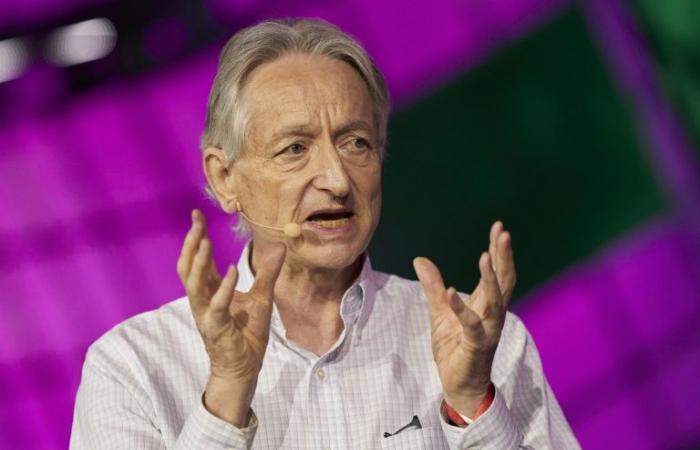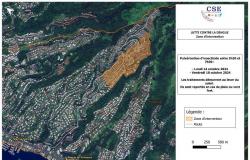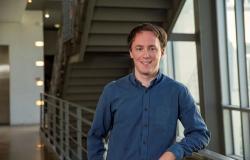Awarded a Nobel Prize in physics alongside John Hopfield for their respective work in “automatic learning”, the British-Canadian Geoffrey Hinton, pioneer of artificial intelligence, recently stood out for his alerts on this technology.
In March 2023, questioned by American television about the “risks of artificial intelligence wiping out humanity”, the researcher did not hide his concern.
“It’s not unimaginable,” he said.
A few weeks later, the septuagenarian slammed the door of Google, where he had worked for around ten years, to run to the media in search of platforms to warn of the dangers of AI.
Born in London, the researcher, now 76, grew up in Bristol, in the southwest of England, before studying in Edinburgh in Scotland and at the University of Cambridge.
He often described his childhood as an existence under pressure, trying to live up to an illustrious family of renowned scientists. His father was a member of the Royal Society, a prestigious British learned society.
Marked throughout his life by depression, about which he spoke to the Canadian magazine Toronto Life, he often tried to find an escape through work.
But after the death of his second wife, who succumbed to cancer in the early 1990s, shortly after the adoption of their two children, the researcher found himself a single father. In 1997, he married a third time, before his wife also died of cancer in 2018.
“I find it hard to imagine how a mother of several children can continue her academic career,” he tells Toronto Life.
“I got into the habit of spending time just thinking about various ideas… With small children, it’s just impossible.”
– “Control” risk –
A self-proclaimed socialist, Hinton went through several American universities from the end of the 1970s, but ended up refusing funds from the American army, the main financier of his field of research.
In 1987, he settled permanently in Toronto, after obtaining financial support from the Canadian government for his work on neural networks.
A marginal academic for years, his ideas end up infusing the communities of researchers he meets.
His career took a turning point from 2013: recruited by Google, he became a central figure in the field in Silicon Valley, while some of his students took the path of competing companies.
Ilya Sutskever, co-founder of Open AI, at the origin of ChatGPT, describes his years with Geoffrey Hinton as “essential” in his career.
At the same time, the two men became major figures in the emerging criticism of AI. Sutskever leaves Open AI a year after Hinton left Google.
“Before AIs become smarter than us, I think those who develop them should be encouraged to work harder to ask themselves how they might try to take control,” Hinton told an audience of tech manufacturers. in June 2023.
More worried than proud of his research, even the declarations following his Nobel Prize – made from “a low-end Californian hotel” – Geoffrey Hinton hammered out a message of caution.
“Under the same circumstances, I would do the same thing again,” he said. “But I worry that the major consequence of all this could be that the models become smarter than us and take control.”
Do you have a real estate project in mind? Yakeey & Médias24 help you make it happen!






